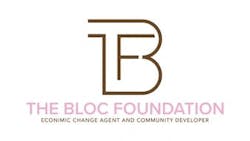Training Program Launched for Female Inmates in New Jersey.
By: Ande Richards
Source: nj.com (TNS)
Last spring, Natasha Davis and her business partner, Natalie Prisock, applied for funding to support women reentering society after incarceration.
But before doing so, the co-owners of The BLOC Society construction company in Elizabeth attended several information sessions to better understand the needs of women inside correctional facilities and those recently released.
Read today’s top news.
“We learned that many of them face challenges finding employment and housing after release,” said Davis, who started the construction company in 2022. “That’s when we shared how our organization — a workforce development and affordable housing nonprofit — could help provide solutions.”
In September, The BLOC Foundation, the nonprofit arm of the BLOC Society, received a $100,000 grant from New Jersey Locally Empowered, Accountable and Determined (NJLEAD), an initiative that supports community-based organizations and municipalities that help people transition from incarceration back into their communities.
Founded in 2023, the BLOC Foundation created a 16-week construction training and certification program designed to help incarcerated women earn nationally recognized credentials and rebuild their lives after release. The inaugural cohort is expected to launch soon at Edna Mahan Correctional Facility for Women in Union Township, though no date has been set.
“The BLOC Foundation is about giving people a second chance,” said Prisock. “We’re helping women find stability, purpose and a new beginning.”
The New Jersey Department of Corrections welcomed the training program, saying the workforce development initiative will directly meet critical labor demands.
“NJDOC prioritizes reentry as a core component of public safety, recognizing that successful rehabilitation and post-incarceration stability are essential for reducing recidivism and strengthening communities,” the DOC said in a statement to Mosaic.
“This initiative empowers participants with the valuable skills and confidence necessary to secure stable, high-paying career pathways upon release.”
Participants will learn to read blueprints, handle materials, and use power and hand tools, Davis said. Upon completion, they will earn a national Core Construction Certification, qualifying them to work in the construction industry.
Davis noted that while construction training programs have existed in correctional facilities, they’ve typically been led by men.
“They’re excited to see us come in — women in pink hard hats,” she added, noting that construction remains one of New Jersey’s highest-need industries. “Now they see women who look like them showing them what’s possible.”
The program will focus on women nearing release, helping them move directly into the workforce.
The DOC has identified 10 women nearing release — typically within 12 months of returning home — for the BLOC Foundation Training Program.
“They’re learning how to build — literally and figuratively,” Davis said. “They’ll leave with knowledge, credentials and confidence. The goal is simple: to certify them, prepare them and help them find work. We’re not just training workers; we’re rebuilding lives.”
The initiative comes at a pivotal moment.
There were about 396 women incarcerated at Edna Mahan as of Jan. 1, according to the DOC, which produced a joint report on recidivism with the State Parole Board.
The report found that of the women released in 2018, the most recent available data, 36% were rearrested, 23% were reconvicted and 25% were reincarcerated within three years.
Rebecca Uwakwe, director of criminal law reform advocacy at the ACLU of New Jersey, said the two biggest barriers to reentry are housing and employment.
“By helping people find stable employment, it also helps them secure housing,” she said. “I’ve spoken to so many clients whose dream is simple. They want to have a stable job, support their family and contribute to society.”
Dameon Stackhouse, a Justice Fellow with the New Jersey Institute for Social Justice, said programs like BLOC’s can restore dignity and opportunity.
“Society often forgets Black women, especially those who are incarcerated,” said Stackhouse. “Support from outside organizations can make a tremendous difference in restoring their humanity and confidence.”
Davis and Prisock agree.
Davis, a nationally certified construction trainer and one of the few Black women in the field, spent more than 20 years in health care before transitioning to project management and founding the BLOC Society. She met Prisock, a real estate attorney and investor, while partnering on a real estate investment project. That led to more joint projects before the two started the BLOC Foundation.
Together, they operate The BLOC Society, but the Foundation remains their passion project.
Davis hopes their model will inspire other organizations to connect workforce development and reentry support.
“We’re not just building careers,” she said. “We’re building confidence, stability and hope.”
©2025 Advance Local Media LLC.
Visit nj.com.
Distributed by Tribune Content Agency, LLC.
